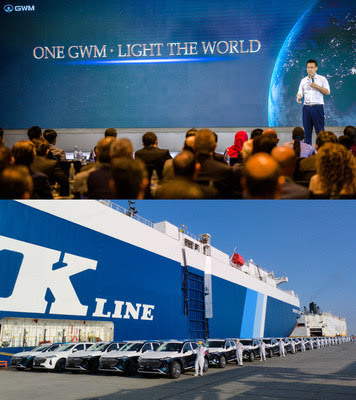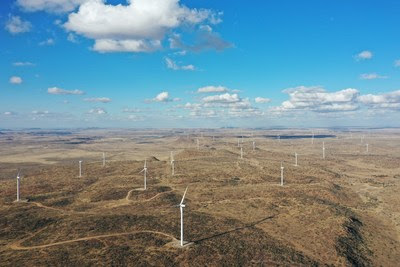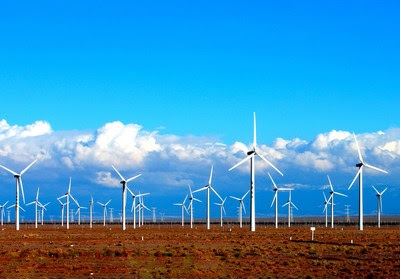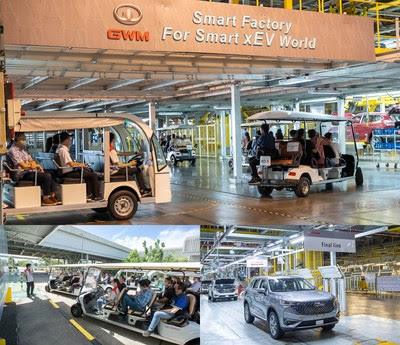In Significant Breakthrough, Military, Political Actors Sign New Framework Political Agreement
While Sudan has been facing a multidimensional political, economic and security crisis since the military takeover of 25 October 2021, the dynamic of recent weeks is cause for optimism, suggesting that it may enter a transitional phase, thanks to a new political framework agreement, the top United Nations official in that country told the Security Council today.
Volker Perthes, Special Representative of the Secretary-General for Sudan and Head of the United Nations Integrated Transition Assistance Mission in Sudan (UNITAMS), noted that military leadership and political actors signed a political framework on Monday, 5 December, which may lead to the formation of a new civilian Government and democratic elections over a two-year transition phase. On 24 October, the Trilateral Mechanism — the African Union, Intergovernmental Authority on Development and UNITAMS — received a document from the military leadership with their comments and amendments to the draft constitutional document, representing a significant breakthrough.
He affirmed that civilian signatories to the draft have formed a collective to engage in talks with the military, leading to agreement on a two-phase political process to return to civilian-led transition. Once reached, the final political agreement will lead to a civilian Government that should be in a better position to address the multidimensional crisis and build a democratic State, he said. The coup and subsequent impasse plunged the country into insecurity, including escalating tensions and violence, with 900 people reportedly killed and many more injured since the beginning of the year.
Since his last briefing, a state of emergency has been imposed on the Blue Nile region, he said, urging all sides engaged in conflict in several regions to at least commit to the principle of non-escalation. Humanitarian partners estimate that 15.8 million people — one third of the population — will need assistance in 2023, while the United Nations and partner agencies’ humanitarian response plan is only funded at 41.3 per cent, he noted. While the signing of the framework agreement is a significant breakthrough, critical issues must still be addressed, including security sector reform and merging of forces, transitional justice, implementation of the Juba Peace Agreement, and status of the Dismantling Committee.
In the ensuing debate, most delegates sounded a note of cautious optimism over recent developments on the ground and in the political sphere, while expressing concern over outbreaks of violence and a dire humanitarian situation.
The representative of Ghana, also speaking for Gabon and Kenya, called on signatories of the political framework agreement to continue their efforts in broadening the support base, and working with non-signatories to build consensus and address remaining issues. Sudanese authorities must release all political detainees, a critical confidence-building measure for a viable and inclusive political dialogue, she said.
Voicing concern about the recurrent outbreak of intercommunal violence in Darfur — despite the signing on 3 August of a cessation of hostilities agreement — she called on the Government to investigate insecurity incidents and criminal activities in bringing the perpetrators to book. Expressing concern about the dire economic situation in Sudan and the global food crisis, she echoed the Secretary-General’s appeal for support to vulnerable communities and continued international assistance for Sudan.
The representative of France welcomed the signing of the framework agreement, which must now be implemented and followed by the appointment of a civilian government. The authorities must ensure conditions for this political process by guaranteeing the right to peaceful protest and ending impunity for those responsible for violence against protesters. The establishment of a functioning Government is essential to stop the spiral of inter-community violence, she said.
Albania’s delegate expressed concern over the political, security, human rights and humanitarian situations in the country. The political framework agreement is welcome, given the role played by Sudanese civil society, but reports of large-scale violence in Blue Nile State are alarming, demonstrating the urgent need to implement the Juba Peace Agreement. In this regard, accountability for violence against civilians, as well as human rights and sexual and gender-based violations, is essential for implementing the agreement in a manner that improves Sudanese lives.
While emphasizing the stabilizing effect of the recent political agreement on the domestic political situation in Sudan, the Russian Federation’s representative stressed the need to focus on implementation. She said the painstaking work must continue with all influential forces and groups, including those who did not sign the agreement. As the Sudanese people can independently and without external interference resolve the issues they face, the Trilateral Mechanism must continue to support the political process and drafting of a constitution, with UNITAMS acting strictly in line with its defined mandate.
Sounding a note of warning, China’s representative stated that pressuring Sudan by cancelling economic aid and debt relief is nothing short of collective punishment, and can lead to serious economic and humanitarian consequences. With the situation in Darfur relatively stable, and a drop in large-scale violence, he stressed that Security Council sanctions are no longer relevant to the situation on the ground, as they hinder the Sudanese Government’s ability to carry out security operations, and should be adjusted until they are lifted.
Welcoming recent optimism, the representative of Sudan urged the United Nations and Secretary-General to intensify their support for the country. “Help Sudan so that we can lift the UN sanctions”, he encouraged, calling on the international community to honour its commitments to the Juba Peace Agreement and convince other armed groups that have not joined the peace process to do so. He attributed the relative stability in Darfur to tribal and local reconciliation meetings in the West and South over the past year. On the Blue Nile, he said the Government managed clashes there, restoring security and facilitating reconciliation, compensation and justice.
The resumption of hostilities in Kordofan was due to opposition armed groups, which are invested in tribal conflicts, he said. Addressing violence against children, he spotlighted several practical elements that have been adopted by the transitional government. On the dire humanitarian situation, he called on the United Nations Development Programme (UNDP) to help internally displaced persons and refugees, especially by ensuring basic sanitary and emergency services and restoring hospitals and health-care centres, voicing his country’s hope for closer cooperation with international financial institutions and development assistance from bilateral partners.
Also speaking were the representatives of United Kingdom, Norway, Ireland, United States, Brazil, United Arab Emirates, Mexico and India.
The meeting began at 10:14 a.m. and ended at 11:40 a.m.
Briefing
VOLKER PERTHES, Special Representative of the Secretary-General for Sudan and Head of the United Nations Integrated Transition Assistance Mission in Sudan (UNITAMS), noted that, since the military takeover of 25 October 2021, the country has found itself in a multidimensional political, economic and security crisis. However, the dynamic of recent weeks has suggested that Sudan may find a way to entera transitional phase. On Monday, 5 December, military leadership and political actors signed off on a political framework that may lead to the formation of a new civilian Government and democratic elections over a two-year transition phase. On 24 October, the Trilateral Mechanism — the African Union, Intergovernmental Authority on Development and UNITAMS — received a document from the military leadership with their comments and amendments to the draft constitutional document, representing a significant breakthrough. He affirmed that civilian signatories to the draft have formed a collective to engage in talks with the military, leading to agreement on a two-phase political process to return to civilian-led transition.
Once reached, the final political agreement will lead to a civilian Government that should be in a better position to address the multidimensional crisis and build a democratic State, he said. It would also allow for the resumption of peace talks and restoration of broad-based international support for Sudan. The coup and subsequent impasse plunged the country into insecurity, with escalating tensions and violence. Since the beginning of the year, 900 people have been reportedly killed and many more injured. The resurgence of violence demonstrates the fragility of the State, he noted, with local authorities lacking the resources to protect civilians.
Since his last briefing, a state of emergency has been imposed on the Blue Nile region, he said, urging all sides engaged in conflict in several regions to at least commit to the principle of non-escalation. Across Sudan, more than 260,000 people have been displaced due to conflict since the beginning of 2022 — often caused by disputes over lack of access to resources and seemingly escalated by political manipulation. He noted that humanitarian partners estimate that 15.8 million people — one third of the population — will need humanitarian assistance in 2023, an increase of 1.5 million over 2022, the largest in a decade.
The number of flood-affected people has reached 349,000, he said, with high inflation reducing household purchasing power and preventing people from meeting their basic needs. The United Nations and partner agencies managed to assist 9.1 million people from January to September; however, the humanitarian response plan is only funded at 41.3 per cent. He noted that protests against military rule have continued and largely remained peaceful, but there has been an excessive use of security force, with the death toll of protesters at 121 since the coup.
He stressed that it is incumbent upon authorities to respect the right to peaceful assembly and avoid excessive use of force, even when provoked. He welcomed the recent visit of United Nations High Commissioner for Human Rights Volker Türk, his first since assuming the role. The meaningful participation of women and youth is critical to the political process towards transition, he noted, and some of their demands were included in the framework agreement. While the signing of the framework agreement is a significant breakthrough, critical issues must still be addressed, including security sector reform and merging of forces, transitional justice, implementation of the Juba Peace Agreement, and the status of the Dismantling Committee. While progress on the political track is encouraging, it can still be derailed by challenges, he said, adding that, as Sudan gets closer to a final political agreement, those who do not see their interests advanced may escalate attempts to undermine the process. An inclusive process may safeguard against that risk, he stated, commending those Sudanese who have joined the framework agreement.
Statements
JAMES KARIUKI (United Kingdom) welcomed the signing of the political framework agreement as an important step toward a return to a civilian-led transitional government in Sudan. He urged all parties to continue putting national interests above narrow political ends and to urgently unite behind a final agreement to form a civilian-led government. He condemned the killing of two further protestors, calling for the security forces to exercise maximum restraint and respect for the right to peaceful protest. The consequences of delay in reaching a final agreement will be severe, he said. A civilian-led transitional government can put the country on the road to recovery and allow for the full resumption of international support. The security situation across Sudan also remains fragile, he added, reiterating his deep concern about significant violence in Blue Nile State and West Kordofan. The Sudanese authorities should implement security arrangements of the Juba Peace Agreement, engage with the impacted communities to restore peace, and fulfil their responsibility to protect civilians.
MONA JUUL (Norway) welcomed the signing of a framework political agreement, which was made possible through the leadership and ownership of a broad group of Sudanese actors and facilitation of the Trilateral Mechanism, comprised of UNITAMS, the African Union and the Intergovernmental Authority on Development (IGAD). The Mechanism will have an important role to play in the facilitation of phase two of the political process, which must have a Sudanese solution as its outcome. Women and youth must have a meaningful and constructive role in the process going forward, as any agreement resulting from a non-inclusive process will lack credibility. Further, the next civilian transitional government must receive timely, and relevant support. Humanitarian action must be scaled up to meet emerging needs, and prevent an even more dire situation next year. People have the right to assemble peacefully, and the Sudanese authorities have an obligation to ensure that this right can be exercised without fear of repercussions. Supporting African solutions cannot only be a figure of speech, but must translate into action, she said.
FERGAL MYTHEN (Ireland) called on the Sudanese military to hand over power to a civilian-led government and create a conducive environment for the next stage of progress by stopping the use of force against protestors, halting unlawful detention and ensuring the right of peaceful assembly and association. While the release of high-level political prisoners earlier in the week was a critical confidence building measure, there are still ordinary Sudanese people remaining in detention. Their freedom, he underscored, will be a sign that the framework political agreement marks the beginning of a return of the people to power. A lasting political agreement requires the buy‑in of people throughout the country, not just in Khartoum, he said, adding that “it cannot just be another elite bargain”. Women must be at the negotiating table in all decision-making bodies and areas of public life. Accountability and transitional justice must deliver for the victims of both current and past crimes. In encouraging Sudan to draw upon the United Nations’ expertise and lessons from other countries in this regard, he also voiced his concern over the alarming rise in sub-national violence and the worsening humanitarian situation.
CAROLYN ABENA ANIMA OPPONG-NTIRI (Ghana), also speaking for Gabon and Kenya, called on signatories of the political framework agreement to continue their efforts in broadening the support base, and working with non-signatories to build consensus and address the remaining issues. The Sudanese authorities must release all political detainees, she said, calling it a critical confidence-building measure for a viable and inclusive political dialogue. Voicing concern about the recurrent outbreak of intercommunal violence in Darfur, despite the signing on 3 August of a cessation of hostilities agreement, she called on the Government to investigate insecurity incidents and criminal activities and bring the perpetrators to book. The national plan for the protection of civilians must be implemented expeditiously, she said, calling on all parties to remain faithful to their commitments, including implementation of the Juba Peace Agreement.
Expressing concern about the dire economic situation in Sudan and the global food crisis, she echoed the Secretary-General’s appeal for exceptional modalities to support vulnerable communities and continued international assistance for Sudan. She further urged the international donor community and international financial institutions to reconsider the temporary suspension of aid to the country and continue their support programmes and projects. Highlighting UNITAMS’ role in supporting the democratic transition process, she said all programmes and initiatives must be determined according to needs and priorities identified by Sudan.
JOHN KELLEY (United States) said the initial political framework agreement announced by Sudanese parties is an essential first step towards re-establishing Sudan’s democratic transition. However, time is of the essence, he stressed, urging all Sudanese actors to engage in dialogue in good faith and establish a civilian-led transitional Government as soon as possible. The Government, including the military and security services, must fully respect freedoms of association, expression and peaceful assembly. They must also fulfil their responsibilities to protect the population and hold accountable those responsible for violence against civilians. He called on the Government to create a more conducive environment for negotiations by releasing political detainees, ceasing violence against protesters and reversing recent administrative decisions undermining the Sudanese Bar Association and other professional organizations. He condemned actions of spoilers inside and outside Sudan attempting to restrict political space and undermine the country’s stability and democratic transition. Recent violence in Darfur and Blue Nile State demonstrates the urgent need to implement the agreement, including security sector reform, robust international monitoring and reporting mechanisms, full deployment of security keeping forces in Darfur and comprehensive, inclusive and transparent transitional justice processes.
ALBANA DAUTLLARI (Albania) expressed continued concern over the political, security, human rights and humanitarian situations in Sudan. The signature, on 5 December, of the political framework agreement by a broad representation of political forces and military is very welcome. She welcomed the role played by Sudanese civil society and commended Sudanese women for their commitment to peace and human rights. Reports of large-scale violence in Blue Nile State are alarming and demonstrate the urgent need to implement the Juba Peace Agreement. In this regard, accountability for violence against civilians, as well as human rights and sexual and gender-based violations, is essential for implementing the agreement in a manner that improves Sudanese lives. Moreover, humanitarian needs remain very high, she said, adding that Sudanese authorities must provide access to all those affected and ensure the safety of humanitarian workers, who are risking their lives to help those in need, she said.
JOÃO GENÉSIO DE ALMEIDA FILHO (Brazil) commended Sudan for its latest developments on the political front and welcomed the Sudanese Bar Association’s draft transitional constitution. He expressed hope that current discussions among civilian political forces will help form the basis for a broader political settlement and that signing of the political framework agreement between civilians and military will open an avenue for closer and fruitful cooperation. Concerned about recurring intercommunal violence, he called on Sudan’s authorities to increase their efforts to protect civilians, enhance accountability and guarantee conditions conducive to the safe return of displaced persons. It is urgent to mobilize support from international partners to resume financial assistance to Sudan, ensure the provision of basic services and generate new economic opportunities. Tackling socioeconomic constraints and poverty, as well as implementing, without further delay, the Juba Peace Agreement are fundamental steps towards sustainable peace, he said.
AMEIRAH OBAID MOHAMED OBAID ALHEFEITI (United Arab Emirates) welcomed the signing of the political framework agreement, expressing hope that it opens a new page, with the Sudanese people continuing their path towards security and prosperity. The upcoming phase requires building on current momentum, she said, stressing the importance of including women in consultations. She stressed that the success of the transitional period in Sudan requires the resumption of programmes by international financial institutions and continued support from international partners for Sudan’s economy. Regarding the situation in Darfur, local reconciliation agreements demonstrated their effectiveness in continuing to support stability, as well as valuable contributions of the Permanent Ceasefire Committee, which has made significant progress in implementing transitional security arrangements for Darfur in accordance with the Juba Peace Agreement.
ANNA M. EVSTIGNEEVA (Russian Federation) emphasized the stabilizing effect of the recent political agreement on the domestic political situation in Sudan. This will help enable the resumption of international donor assistance and, in turn, facilitate an address of outstanding socioeconomic issues. In stressing the need to focus on implementation, she said the painstaking work must continue with all influential forces and groups, including those who did not sign the agreement. As the Sudanese people can independently and without external interference resolve the issues they face, the Trilateral Mechanism must continue to support the political process and the drafting of a constitution. UNITAMS must act strictly in line with its defined mandate, pay equal attention to all components and intensify its work on donor assistance. It is hypocritical, she underscored, to link the resumption of international assistance with the transfer of power to a civilian government. Turning to the situation in Darfur, she acknowledged the role of the military leadership, urging central and local powers to continue undertaking swift measures to prevent intercommunal violence and escalation. She then called for a review of the Council’s sanctions, as they have lost their significance, are no longer helpful, curtail the Government’s work and impact the lives of Sudanese people.
GENG SHUANG (China) welcomed the signing of the political framework agreement on Monday — a major step for Sudan to break its impasse and restore political transition. He called on non-signatory political forces to join the process as soon as possible, and for all to seize the momentum and engage in dialogue towards a solution of outstanding issues. Transition requires painstaking efforts, and the international community should support the Sudanese-owned and -led process. Pressuring Sudan by cancelling economic aid and debt relief is nothing short of collective punishment, he stressed, and can lead to serious economic and humanitarian consequences. Citing worrying recent intercommunal violence in Blue Nile State and other areas, he noted that the Sudanese Government has deployed forces to the incident areas, leading to ceasefire agreements and stabilization; however, land and livestock disputes are perennial in Sudan, requiring dialogue between communities to resolve resource allocation. He noted the situation in Darfur has been relatively stable, with a drop in large-scale violence. Security Council sanctions are no longer relevant to the situation on the ground, he stressed, as they hinder the Sudanese Government’s ability to carry out security operations, and should be adjusted until they are lifted. Noting that one third of the population still requires humanitarian assistance, he called on the international community to increase its efforts, further citing a number of Chinese initiatives to assist the Sudanese people.
JOSÉ DE JESÚS CISNEROS CHÁVEZ (Mexico), welcoming the signing of the framework agreement between civilians and military in Sudan, said any pending issues must be resolved through peaceful and inclusive dialogue. He called on political forces, which have so far not signed the agreement, to join it. To revitalize the political process, priority must be given to security sector reform, implementation of the Juba Peace Agreement and transitional justice, he said, urging key actors to work in a coordinated fashion with the Trilateral Mechanism towards that end. Women have been one of the drivers of the revolution in Sudan, he underscored, adding that they must have the space for participation in decision-making processes at all levels and stages. The proposed quota of at least 40 per cent of posts in Government and legislature reserved for women will undoubtedly contribute to greater inclusion, he said, calling for necessary measures to achieve the quota. Voicing concern about violence in recent months and serious violations of children’s rights, he urged authorities to address causes and redouble their prevention efforts. Implementation of the national plan for the protection of civilians must be expedited, he said.
NATHALIE BROADHURST ESTIVAL (France) welcomed the signing of a framework agreement between the military and a large portion of the civilian opposition. It must now be implemented and followed by the appointment of a civilian government. The authorities must ensure conditions for this political process by guaranteeing the right to peaceful protest and ending impunity for those responsible for violence against protesters. The establishment of a functioning Government is essential to stop the spiral of inter-community violence, she said. Further, she encouraged all armed groups that did not sign the Juba Peace Agreement to join the peace process without delay. The re-establishment of a credible democratic transition meets the aspirations of the population, is consistent with commitments made by the military and is essential for restoring the confidence of the international community. Cooperation between the authorities and the Tripartite Mechanism must continue, with a view to implementing in good faith the letter and spirit of the framework agreement that has just been signed, she said.
RUCHIRA KAMBOJ (India), Council President for December, speaking in her national capacity, welcomed the signing of a political framework agreement in Sudan, noting that efforts of Sudanese authorities to create a conducive environment by annulling the nationwide emergency and releasing political detainees has helped in easing tensions. Sudanese stakeholders need to consolidate gains made so far and move towards an inclusive political agreement, she added, stressing the need for a Sudanese-led and Sudanese-owned, inclusive and credible political dialogue to find a lasting solution. Voicing hope that stakeholders will continue to address security sector reforms and accountability, as well implementation of the Juba Peace Agreement, she encouraged the Trilateral Mechanism to work closely with stakeholders to facilitate the political agreement. Also voicing hope for efforts to expedite the deployment of the Joint Security Keeping Forces, she said intercommunal violence in West Kordofan and Blue Nile States, due particularly to land disputes, can be tackled only by prioritizing reconciliation and addressing political and security-related issues. Noting that suspension of a significant portion of international donor assistance and the pause in engagement by international financial institutions has severely impacted overseas development assistance and humanitarian activities, she called on the international community to scale up support.
AL-HARITH IDRISS AL-HARITH MOHAMED (Sudan), noting the recent optimism, urged the United Nations and the Secretary-General to intensify their support for Sudan. “Help Sudan so that we can lift the UN sanctions”, he encouraged, as he called on the international community to honour their commitments to the Juba Peace Agreement and convince other armed groups that have not joined the peace process to do so. Turning to relative stability in Darfur, he attributed the situation to tribal and local reconciliation meetings in the West and South over the past year. The Government, he said, managed clashes in the Blue Nile, controlled the situation, restored security and facilitated reconciliatory, compensation, justice and in-kind support efforts. The resumption of hostilities in Kordofan was due to opposition armed groups, which are invested in tribal conflicts. The Government sent reinforcements to ensure security, enable the return of displaced persons and facilitate the work of humanitarian personnel. These conflicts, he explained, are quite often due to disputes over property, rights, taxes or environmental issues. Climate-related changes have exacerbated clashes between farmers and locals, resulting in an increase in internally displaced persons and impacted efforts to combat poverty and ensure economic development.
Addressing violence against children, he spotlighted several practical elements that have been adopted by the transitional government, including legislation, a national protection plan, the establishment of human rights units within armed forces and the active participation of his country in peacebuilding workshops. As the Juba Agreement’s protocols must be applied to ensure a democratic transition, there must be an earmarked budget for the ceasefire committee, he emphasized. Regarding the dire humanitarian situation, he called on the United Nations Development Programme (UNDP) to help internally displaced persons and refugees, especially by ensuring basic sanitary and emergency services and restoring hospitals and health-care centres. He then welcomed the conclusions and observations of the Secretary-General’s report and called on the international community to provide the necessary financial support to implement the Juba Agreement. It must shoulder its responsibility and provide humanitarian assistance to the hundreds of thousands of refugees living in neighbouring countries, he stressed, as he voiced his country’s hope for closer cooperation with international financial institutions and development assistance from bilateral partners.
Source: United Nations









